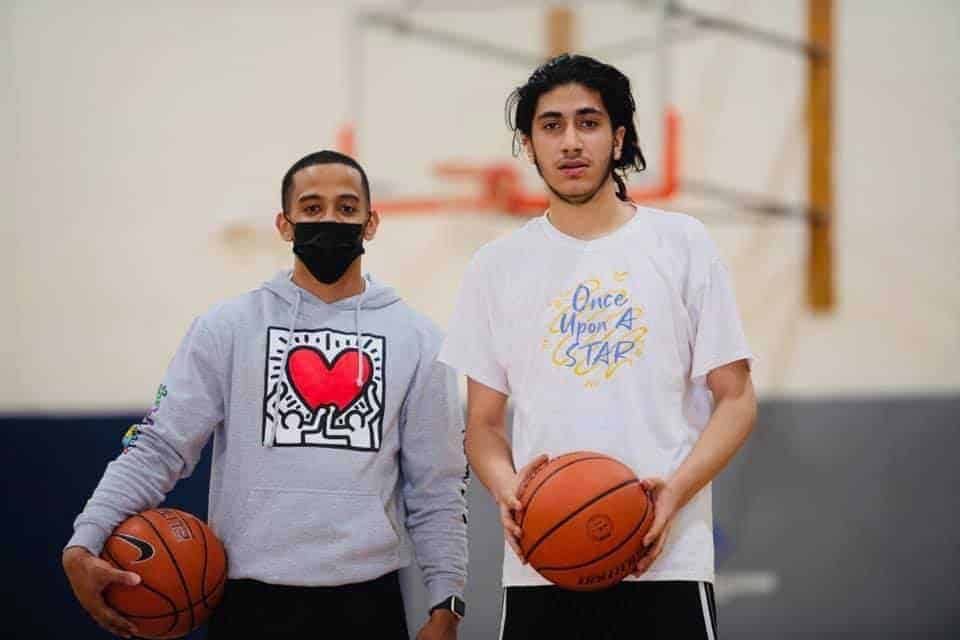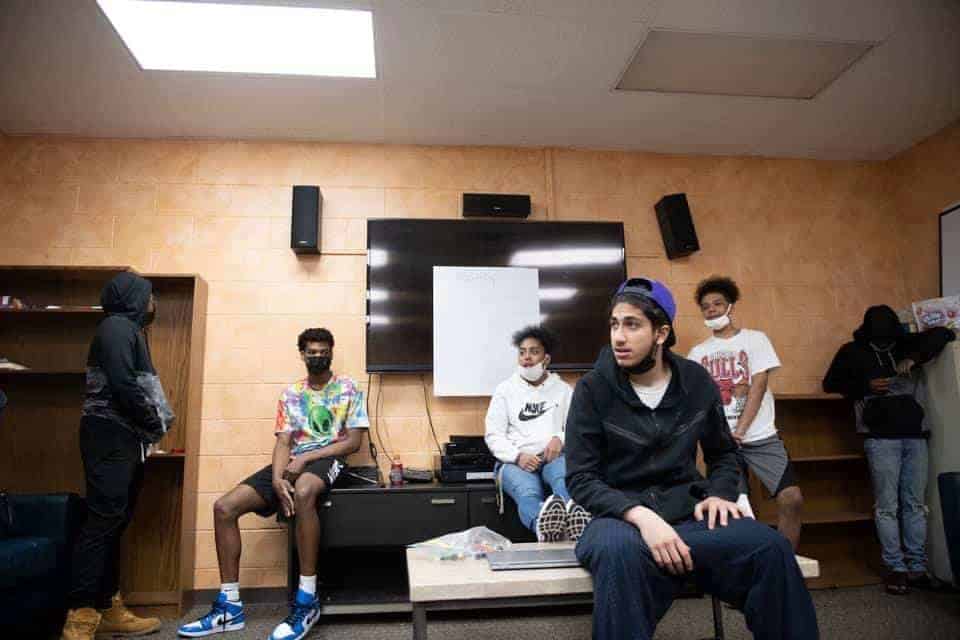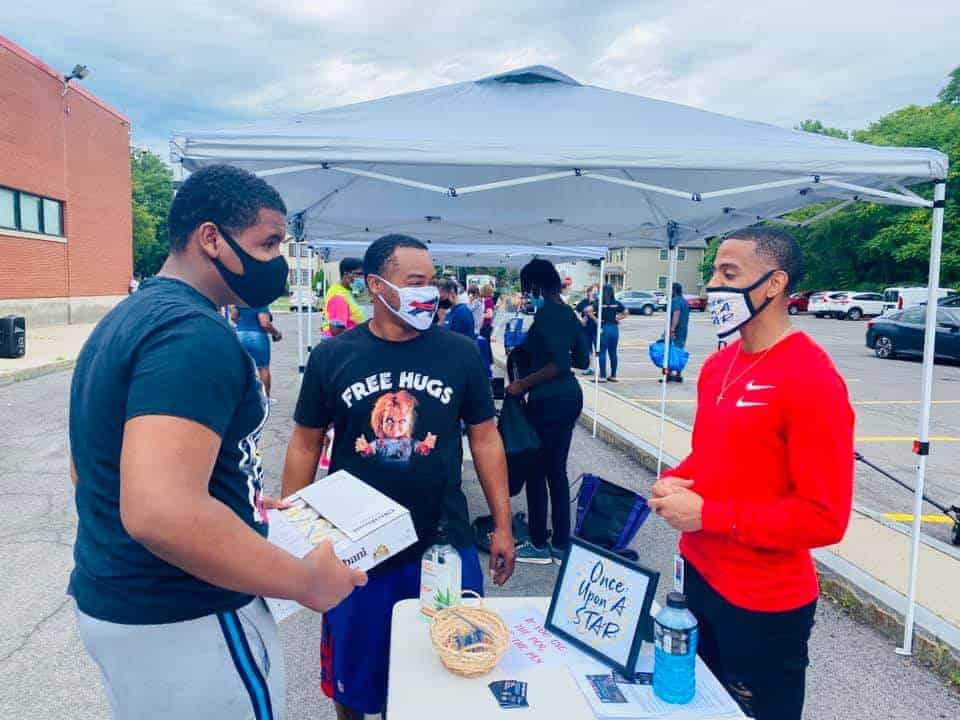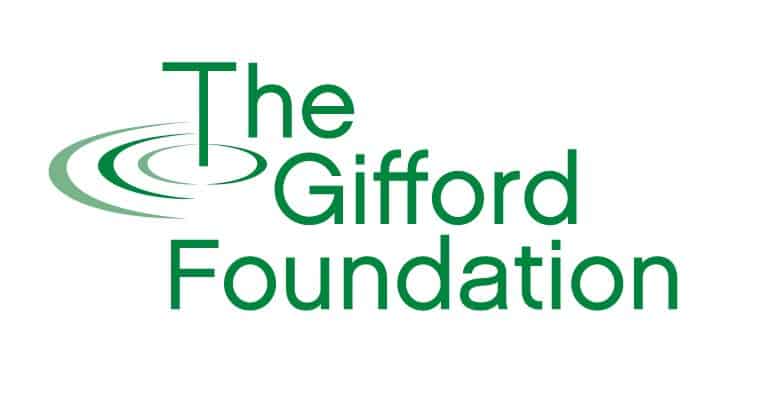Once Upon a Star
At only 25 years old, Sultani Campbell launched his own youth mentorship program called Once Upon a Star. By teaching life skills and connecting participants with employment opportunities, Campbell supports young people as they seek their own path and identity.
Published August 10th, 2021
How do we get people to buy into the long game? What can we offer teenagers immediately that would make a difference? These are questions Sultani Campbell asks himself and others every day. A native of Syracuse, the 25-year-old has made it his life’s work to find ways to help high school age youth as they navigate what is often the most difficult and dangerous time in their lives. “There are seventeen-year-old’s making $10,000 a day [on the street]. What can I do, when I’m working hourly, to come change their mind about that? Unless we can offer them something realistic, they aren’t going to listen.” Campbell says the high rewards and easy access of high-risk activities like selling drugs is a powerful temptation, so he has had to find creative ways to make them see the value of short-term sacrifice for long-term rewards.

Sultani Campbell (left) launched a youth program of his own design after being awarded a “What If…” mini grant from The Gifford Foundation.
Through a grant from The Gifford Foundation, Campbell launched a program of his own design in 2020. Once Upon a Star targets youth ages 13 – 19 with the goal being to reach them in the beginning of high school up through one year after graduation. “When you’re out of high school and out of that schedule, you are suddenly freelancing. Especially if you don’t go to college, you are on your own and it can be harder to maintain a positive structure.” That’s where Once Upon a Star comes in. “The main focus for Once Upon a Star is mentorship and giving the kids a structure,” says Campbell emphasizing that it goes beyond just giving the kids a place to go for a few hours each week.
A primary service they offer comes in the form of job training and employment opportunities through a network of partnerships that Campbell has cultivated with local businesses. By doing much of the legwork between the youth and these companies, he is able to improve the odds that the employer/employee partnership will succeed. “I have personally gone into the community and built relationships with local managers to try and get these kids streamlined paths to these jobs,” he says.

Campbell negotiated the use of space at The Boys and Girls Club of Syracuse and also invited the nonprofit Family Planning to provide sexual health education during their sessions.
Additionally, Campbell has built up partnerships with other community organizations which has expanded both his access to youth as well as the breadth of services he can offer. From fall of 2020 through May of 2021 the program operated in partnership with The Boys & Girls Club of Syracuse which provided space and materials. A collaboration with the nonprofits Family Planning and FACES facilitated sexual health education, relationship advice, and specific training to help prevent the spread of HIV.
The shockingly young ages of many murder victims and perpetrators within the City of Syracuse has rekindled a conversation throughout the community about how to address the tragedies that appear all too frequently in the local news. At the time of this article was written, five out of the nine murder victims in 2021 were under the age of 21. The youngest was a little girl named Dior Harris who was only 11 months old. It is interesting to note that while shootings and homicides have risen since the pandemic, the overall crime rate has actually decreased.
“I see a lot of identity crises at that age,” says Campbell on the subject of youth violence. “The term is used loosely but I don’t think people talk about it enough.” Many people recognize that teens are going through a transitional time as they begin to figure out what kind of adult they want to be. But Campbell argues that we do not fully acknowledge what the impact of that process is on the life choices they make. “A lot of kids are still trying to identify who they are, and that’s what sways a lot of their behavior. They say, ‘I’m going to hang out with this group because that’s who accepts me the most, and if I don’t hang out with them then who am I?’”
These same social dynamics also play a role when wayward young people try to change their habits and work more seriously towards earning their degree or carving out a place for themselves in the job market. Campbell describes one teenager he worked with at the Hillbrook Juvenile Detention Center on Velasko Road who we will call Louis for the purposes of this article: Louis had gotten into serious trouble and spent a year and a half in jail before coming home on parole. Despite being two grades behind in school, he joined Campbell’s Once Upon a Star program and went on to earn his high school diploma this year and start a new job.

“I see a lot of identity crises at that age. The term is used loosely but I don’t think people talk about it enough. A lot of kids are still trying to identify who they are, and that’s what sways a lot of their behavior. They say, ‘I’m going to hang out with this group because that’s who accepts me the most, and if I don’t hang out with them then who am I?”
During their conversations, Louis told Campbell that his biggest issue was a feeling that his friends were changing and that they were laughing at him for getting a job and working. “When you’re elevating and other people aren’t, they are going to look at you like you’re looking down on them,” Campbell explained. “And it’s not that. You still want to be their friend but they feel like because you’ve changed your ways and no longer pursuing what you did before, they feel like you think you’re better than them.”
Campbell’s mentorship helped to keep Louis mentally grounded and led him to understand the challenges that come along with those positive changes. A key lesson was the idea that he had to get his own life in order before worrying about his friends’ choices – a concept he explained via the “Oxygen Mask Theory” they teach on airplanes: put yours on before assisting others. “How can you save everyone else if don’t have oxygen?”
To better understand the needs and challenges that Syracuse youth are facing, Campbell says that the key is simply to listen without immediately offering solutions or advice. Before that can happen, trust has to be established and the person has to know that they are being sincerely heard. “We need to step back and say, ‘I really have no idea what this person went through prior to bringing their issue to me. I can’t tell you how to handle it. But I can listen to your problem and because of my experiences and age, I can tell you the avenues available to you.”
Lastly, Campbell cautions older community members about falling into the trap of putting all the blame on the youngest generation for the crime and other challenges we read about in the newspapers. “It’s way bigger than just a 13-year-old getting access to a gun,” he says. “Who gave him access to a gun? It’s way bigger than a 17-year-old in a rival gang. Who’s telling him to kill someone else? You can blame a generation but it’s coming from somewhere. It’s more a community issue than a generational issue.”


